Culture
How 4 Veterans from the Army, Navy, Air Force, and Marines Bring Their Passion for Service to 2U
Written by Mosaic on May 18, 2022
Related content: Diversity And Inclusion, Life at 2U
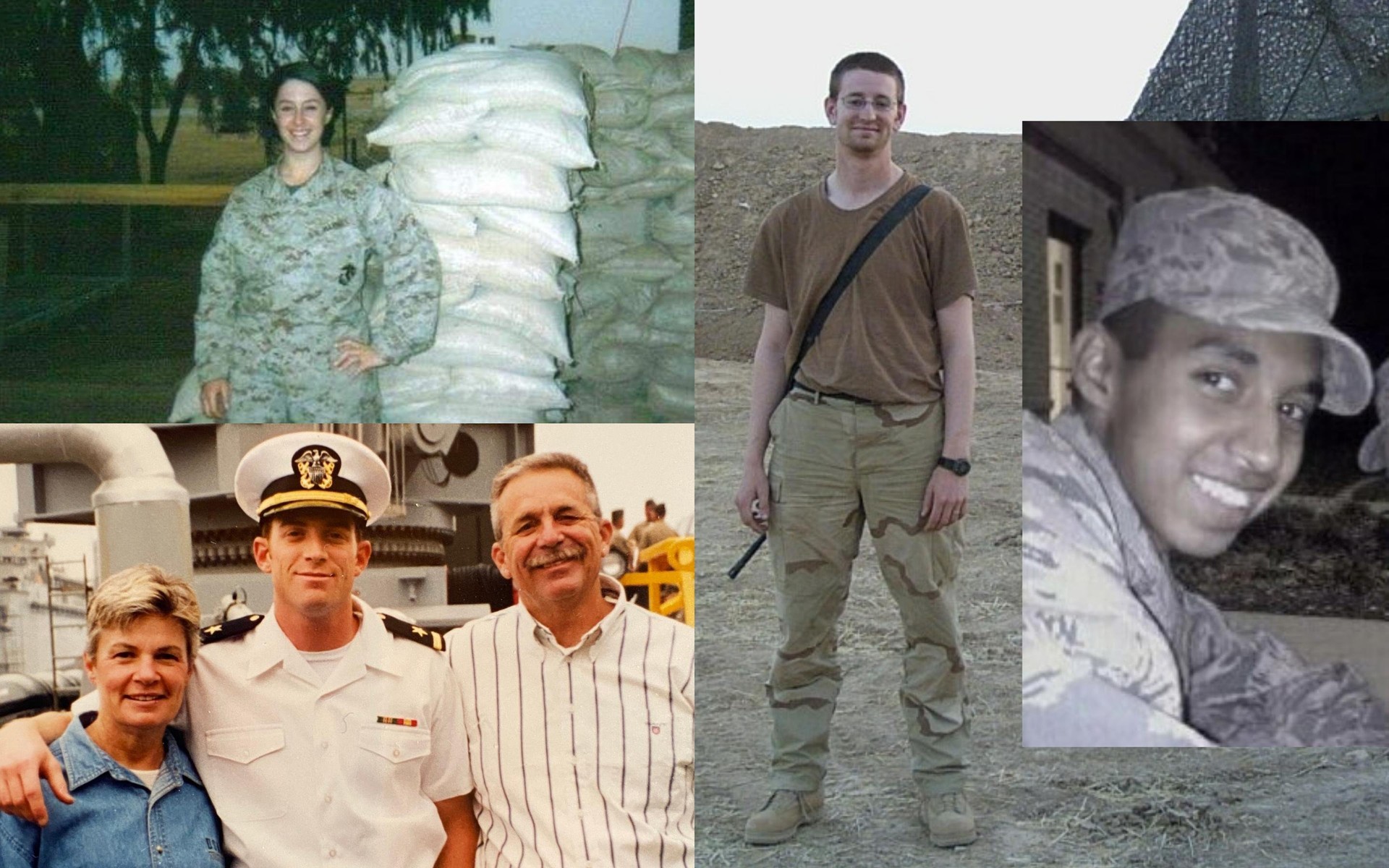
May is Military Appreciation Month, and at 2U, this important observance is just one of many ways we honor both the service and the sacrifice of active-duty military, veterans, and their families throughout the year.
Within our own ranks across the company, Software Engineer John Ford (Army), Marketing Strategy Manager Chris Hubby (Air Force), Admissions Counselor JD Lader (Marines), and Vice President and General Manager John Ruzicka (Navy) are just four of the many remarkable veterans infusing their unique brand of passion and dedication into making a powerful difference for students, educators, and our partners every day. We sat down with them to learn more about their military background, how they’re applying the skills they honed in service to their role at 2U, and what Military Appreciation Month means to them.
Hello, everyone! For starters, thank you for your service. It’s an honor and a privilege to speak with you. So that we get to know each of you a little better, tell us: Why did you decide to go into the military, when and where did you serve, and what was your role?
John Ford, Army: I enlisted right out of high school. Like many kids at that age, I wasn’t quite sure what to do with my life. I knew I eventually wanted to go to college, but I didn’t really know how I was going to afford it. I figured the Army was a great way to get out of my hometown and see other places while earning a path to a degree. I signed up for a six-year enlistment, from 2002 to 2008, as a cryptologic linguist—the Army’s fancy way of saying “intercept signals in a foreign language and translate them.” I had a longer-than-average training time and didn’t arrive at my first duty station until late 2004; I was then very quickly deployed to Iraq for most of 2005. Upon returning, I spent the last two years of my enlistment attached to the National Security Administration (NSA).
Chris Hubby, Air Force: I come from a military family. My grandfather and great grandfather both served in the military. Their history in the military inspired me to join right after high school. I served in the Air Force Reserves with the majority of that time being at Lackland Air Force Base in San Antonio. My role in the Air Force was in avionics. Essentially, I ensured that the communication and navigation systems on our aircraft were functioning properly for flight.
JD Lader, Marines: When I joined the Marines in 2003 at 18, I was primarily looking for a community and a home. I was already on my own: I'm queer and my parents were non-accepting, so the military seemed like the best way to both escape the weight of poverty and start building my adult life on solid ground. Aside from taking care of practical matters, the Marines offered me a chance to join a fraternity with a storied history, and I wanted to be a part of all of it. I served as an electronic intelligence analyst until 2008 and was stationed in Florida, North Carolina, and Iraq.
John Ruzicka, Navy: I started exploring the service academies well before it was time to start the application process. Our family vacations took us from our small-town Texas roots to visits to all the major service academies before I was in high school. I applied and was accepted to all three academies, and ultimately chose the U.S. Naval Academy because of its location and the career opportunities and variety of roles and locations available in the Navy. Upon graduation, I selected surface warfare as my specialty and chose the USS Rushmore (LSD-47), an amphibious ship based in San Diego. Our main mission was to conduct ship-to-shore offloads, effectively “delivering” an entire Marine expeditionary unit to a precise location anywhere in the world. In my roughly four years on sea duty, I saw much of the world, including Australia, Singapore, Thailand, Guam, South Korea, Japan, and the Middle East.
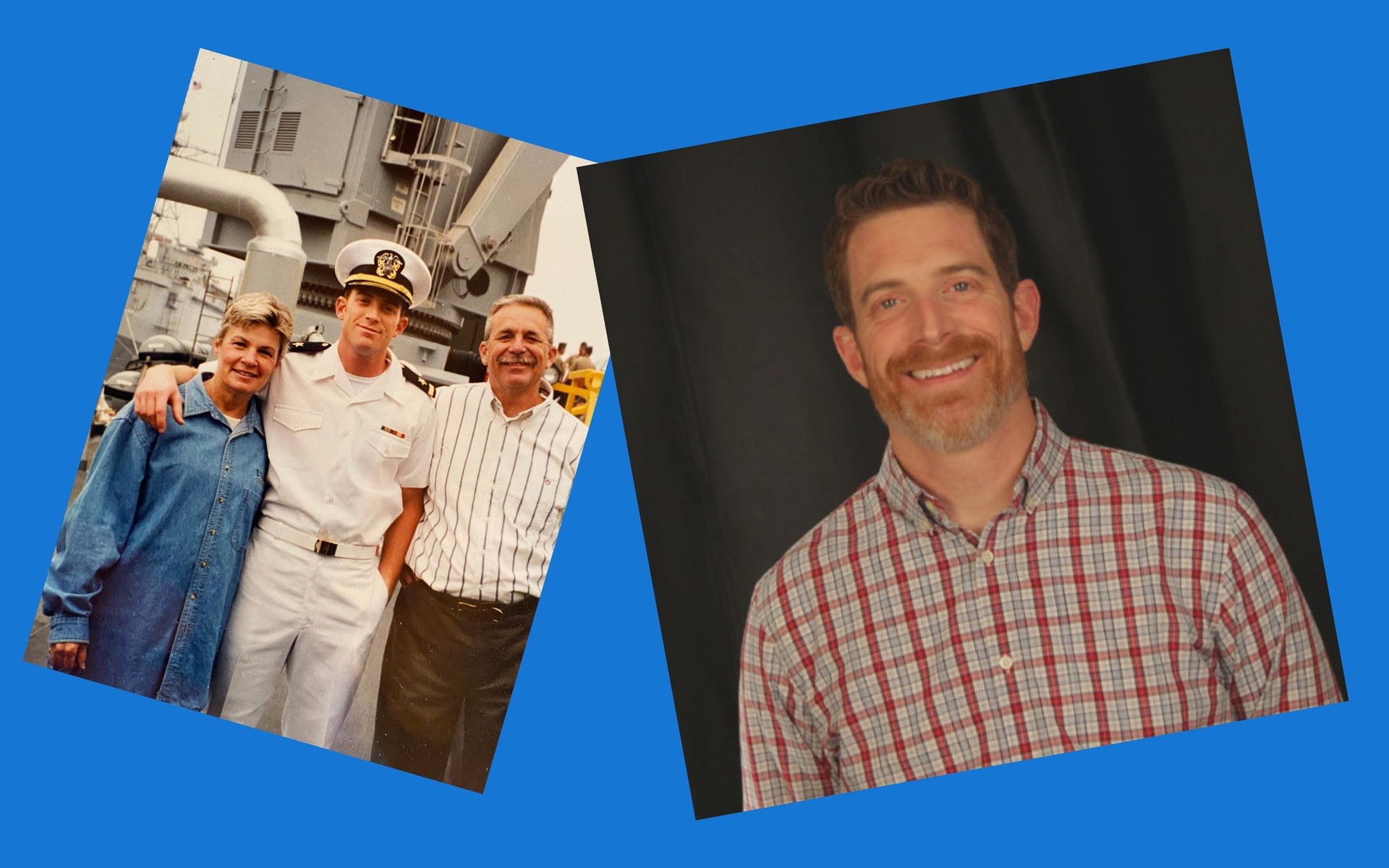
Wow, all four of you have had such an incredible range of experiences during your military journeys. How are each of you applying what you learned from your time in service at 2U today?
Chris: The military taught me how to be flexible and adapt in high-pressure environments. Marketing strategy requires adaptability and the ability to pivot quickly when necessary. My military experience accustomed me to an environment in which priorities and deliverables can be everchanging.
JD: I currently support Syracuse University’s online Master of Social Work program and I’m also a Syracuse alumna. Syracuse has a rich tradition of being military-friendly, and I often connect with fellow veterans during the normal course of my work on the Admissions team. My time on active duty was difficult for a number of reasons, but the process of surviving those struggles led me to develop a strong desire to help others. Working in Admissions gives me the opportunity to help people move forward on their higher education journey.
John R.: As a Naval Academy graduate, I was expected to be able to step into a leadership role as soon as I boarded my first ship. At 22, it was important to be humble, genuinely curious, and learn as much as possible from the noncommissioned officers who had much more experience than me. Ultimately, my job as a junior officer was to ensure the folks in my division had the tools, training, and resources to do their jobs. Fast forward to today in my work with MIT, and I still remember those lessons well. Working in a matrixed organization, many of the same lessons apply: Listen first, be curious, and ensure those working with me on the MIT portfolio have what they need to do their best work for our partner.
John F.: The latter part of my stint with the NSA was very technology-heavy, and it was the first time I seriously considered pursuing a career in programming. I ultimately ended up earning my bachelor’s degree in Computer Science as a result. In the more day-to-day work at 2U, I’d say my military background has had more of an influence on my habits and work ethic. I really took to heart the drill sergeant saying, “If you’re not early, you’re late.”
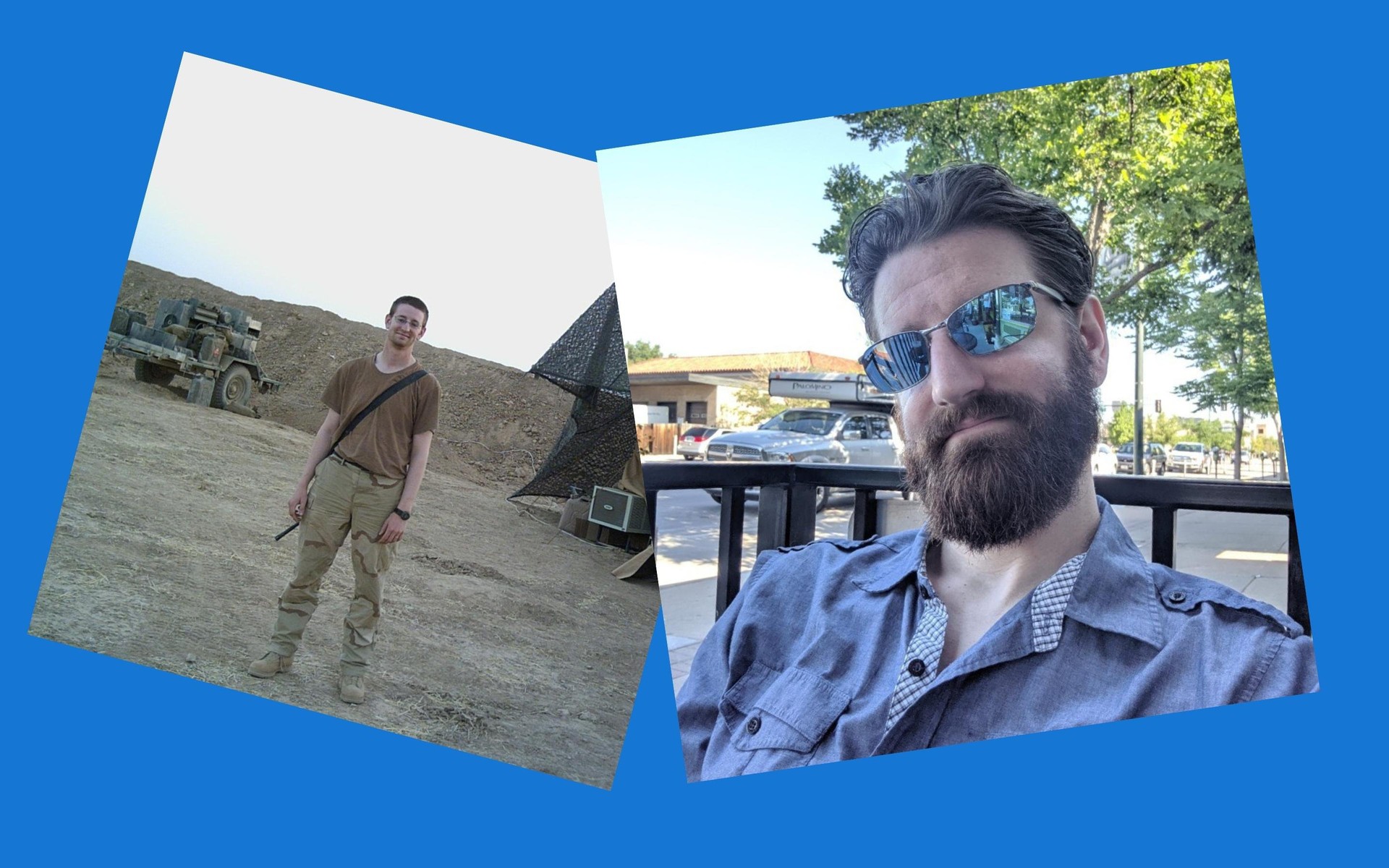
John, that motto very much applies in the high-speed world of edtech! Speaking of, what do each of you value most about education? How might your passion for it be related to your notion of “service”—and how do you see education as a powerful resource for transitioning to civilian life?
JD: Education means the world to me, as I grew up poor and never expected to go to college. The GI Bill allowed me to get my undergrad degree in Applied Psychology, and 2U’s tuition reimbursement program helped me earn my MS in Communications from Syracuse. I'm also deeply passionate about increasing access to high-quality, low-cost higher education. My wife, our daughter, and I once lived in rural Arizona, where I worked as a case manager to connect underserved populations with the scarce community resources there. Many of these individuals desperately wanted to continue their education past high school, but lack of funding and transportation, needing to pay bills, and family caregiving responsibilities comprised their most significant barriers. If they had had access to 2U’s online education offerings, they would have had a much better chance of overcoming those barriers.
John R.: As the son of a teacher, education has always been important to me. I don’t recall feeling pressure to do well in school; it was simply expected of me and my siblings. One of the reasons I chose the Naval Academy was because of its outstanding academic reputation and the myriad opportunities after my service obligation. A couple of years after leaving the Navy, I started a marketing role with the business school at the University of San Diego. So much of my Navy experience remains applicable—in fact, much more than I initially expected: clear communication, working with diverse stakeholders, listening and asking great questions, problem-solving, resilience, and relentless focus on accomplishing the mission.
John F.: Education opens up so many opportunities. It’s a chance to expand your mind, get out of your comfort zone, learn new skills, or master long-held ones. In leaving the service behind and starting a new chapter in life, I’d be hard pressed to think of a bigger influence than education. It can be taking some existing skills picked up in the military and learning how to apply them in a business setting, or it can be a full pivot to something brand-new in the job you always wanted.
Chris: I value the commitment and dedication it takes to complete the course, program, or degree you’ve set out to complete. I believe anyone who aids in your progress toward completing your education—admissions counselors, professors, tutors, etc.—truly embodies what service is in helping you reach your goals. Education helps bridge the gap between military and civilian life.
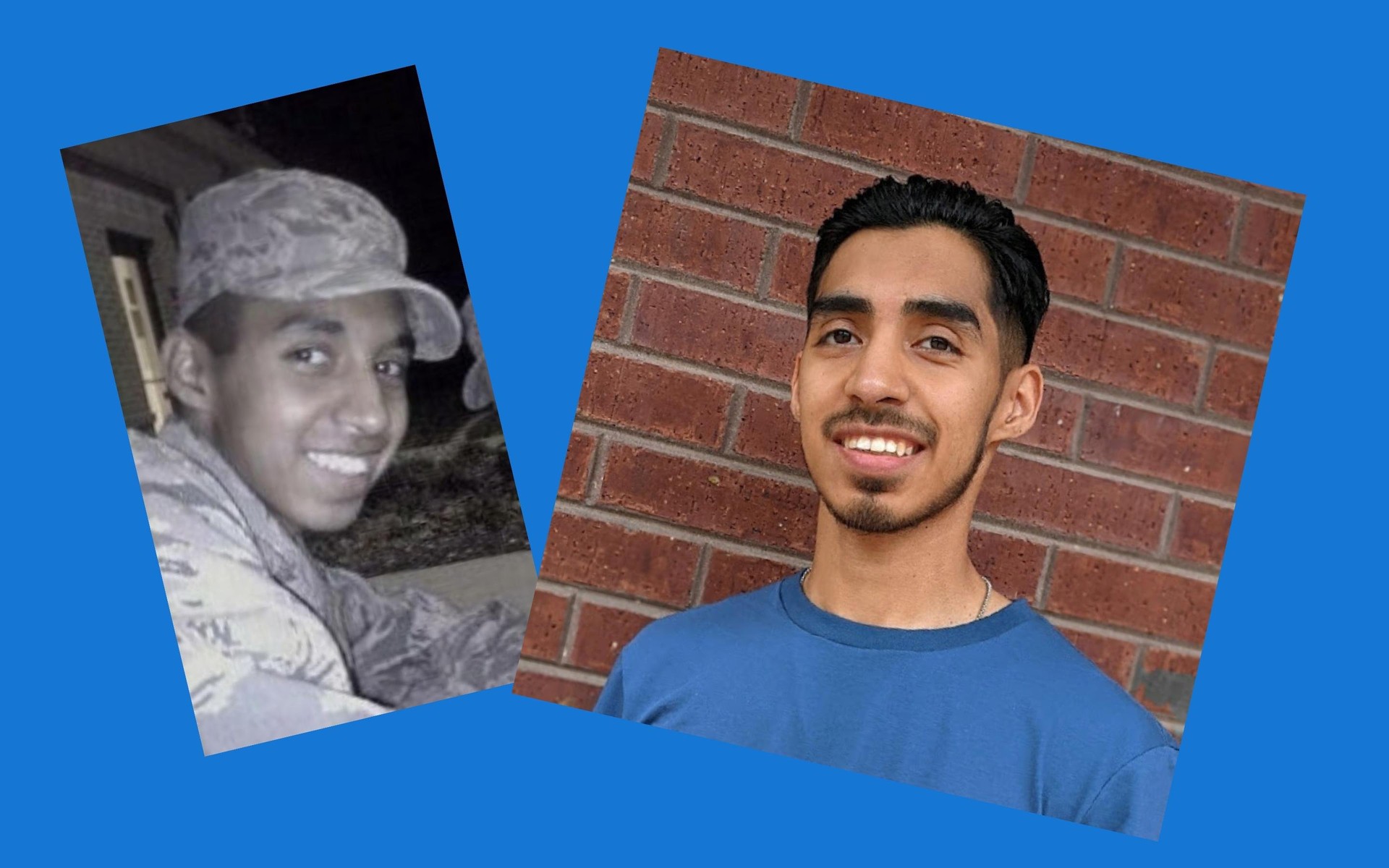
What a powerfully succinct way to put that, Chris. With May being Military Appreciation Month, what would each of you say this observance means to you personally?
John R.: Military Appreciation Month is an important way to recognize the service and sacrifice of our active-duty, retired, and separated veterans—and their families. So many of them have given much more than I did, so I join in celebrating and thanking them. Memorial Day also serves as a reminder to those we lost and the families they left behind.
John F.: I view most military holidays as a time for reflection. When it comes to Military Appreciation Month, I think about how I wouldn’t be where I am today without the benefits I earned through my service. The Army transformed my life by opening the door to higher education. Along the way, I also got several generous servings of life lessons, although I think younger me might’ve reconsidered had he known that in advance.
Chris: Military Appreciation Month is a reminder to me of those who have put on the uniform with their family and loved ones in mind. It’s a reminder of what the uniform represents and the commitment it takes to serve.
JD: To “be candid, honest, and open”—one of 2U’s Guiding Principles—any type of "thank you for your service" sentiment is personally difficult for me to process. I don't necessarily feel like I did something extraordinary, I carry quite a bit of survivor's guilt with me, and as an adult today, I very much struggle with the moralities of and justifications for war. I also served as a woman—a challenging task during wartime—and also under the Don't Ask, Don't Tell policy, under which my queer friends and I had to navigate our military service while hiding our authentic selves. Instead of expressing appreciation, for me it’s important for civilians to study the stats and complexities of the American military, both currently and in the past. Meeting us where we're at, listening to our stories, working toward understanding our history—even the hard stuff—would go a long way toward helping some of us feel less adrift on the ocean of our experiences.
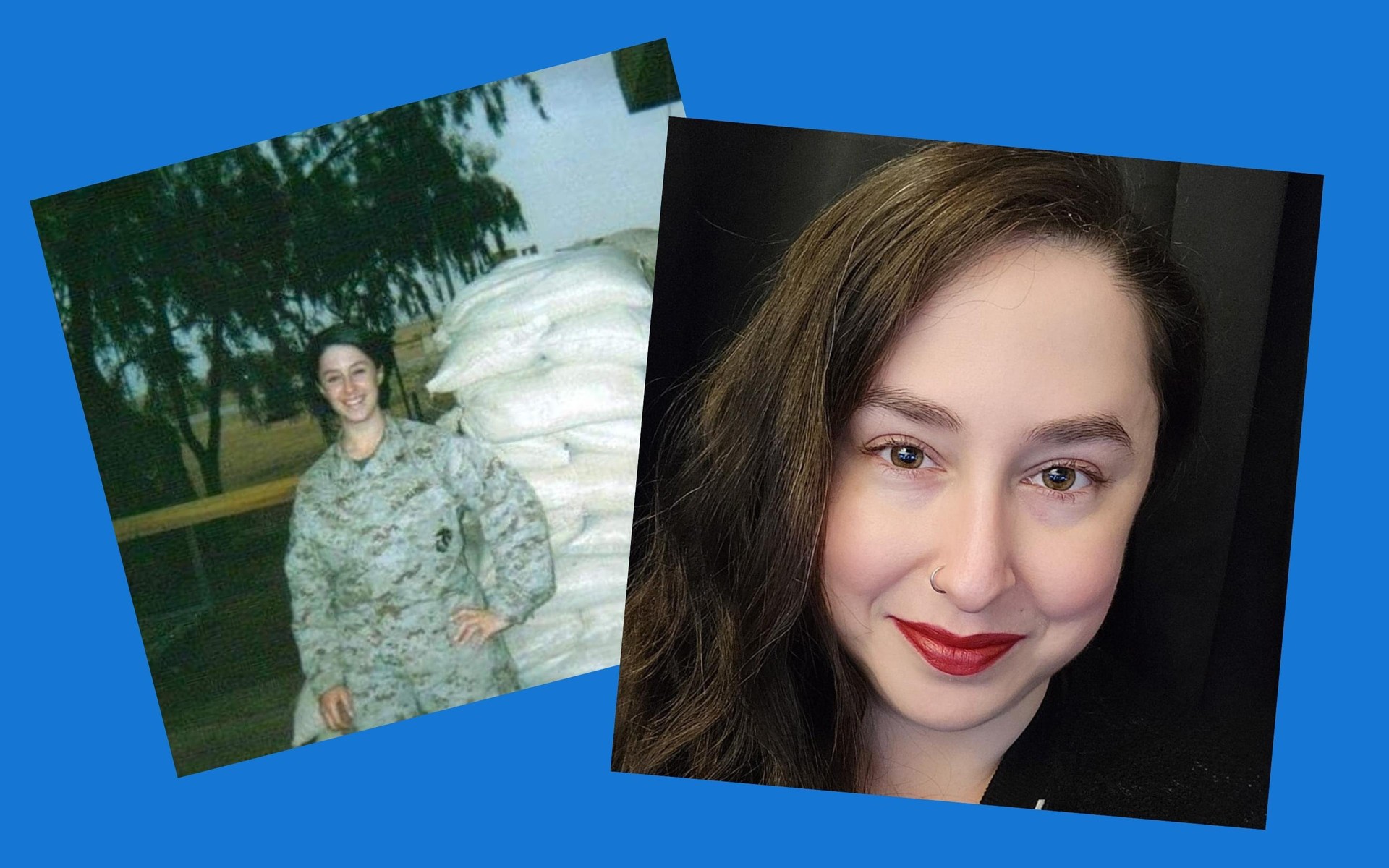
Thank you, JD—and all four of you—for sharing your powerfully honest perspectives there. It’s so important for the world to better understand all of the intricate emotions and sometimes difficult choices that come with being brave enough to serve. If each of you went back to that time you were still serving, what’s one 2U-powered degree program, boot camp, executive education offering, or course on the edX platform you’d find particularly helpful, and why?
Chris: I would choose the online Master of Science in Management and Leadership (MSML) from Pepperdine University, which is one of the programs I help support in my role at 2U. A huge part of the Air Force is rooted in leadership and ensuring you set the right example for new airmen. I believe the skills taught in this program surrounding management and leadership would translate well.
John R.: We have so many impactful executive education programs with MIT, which makes it hard to choose just one. But I do think that the MIT Sloan School of Management’s Inquiry-Driven Leadership course would have provided some great frameworks for asking the right questions and being more effective as a young leader in the Navy.
John F.: It’s certainly a cliche answer coming from a software engineer, but I wouldn’t hesitate to pursue any computer science offering. Whether a degree program, boot camp, or executive education course, I think any lessons in programming, data science, or similar skills can find good use in today’s world.
JD: I often recommend 2U-powered certificate and boot camp programs to other veterans. I think they’re particularly suited to the flexible needs of new veterans entering the civilian workforce and looking to quickly skill-up for the job market.
Yes, so many military servicemen and women will find value in these recommendations from all of you. Any other general advice for veterans and active-duty military who may be considering 2U as their next career?
John R.: To anyone transitioning from active duty and considering 2U as a career path, I say, “go for it!” 2U is a unique, fun, fast-paced organization where you can really have an impact on students’ lives and create better outcomes for the world. On the partner side, we have the pleasure of serving many of the most hallowed institutions and most trusted brands in the world—along with working directly with their top-ranked faculty. Every day is an opportunity to learn something new, work with our esteemed partners, and connect with a truly global workforce.
JD: Many veterans are disabled, as I am, and while 2U is disability-friendly, corporate America overall has a very long way to go when it comes to recruiting, training, accommodating, and retaining disabled employees. For disabled veterans looking to make the next step in their career, I would encourage them to look for a company like 2U that encourages and supports remote workers, allows for flexible paid time off (PTO), and mentions DEI in its mission statement.
Chris: I would say that 2U is a great company with a lot of diversity similar to the military. I would also recommend continuing to foster a growth mindset like we do in the military, because there’s a lot to learn and plenty of people to help you along your journey at 2U.
John F.: You should absolutely go for it. Working at 2U, I am so grateful for my team and the people I work with everyday. It feels good to know I have their support, and we’re all engaged to try and make things better. 2U is one of the few places I’ve worked where I have yet to experience the “Sunday scaries”—that feeling that creeps in late in the day on Sunday when you’re already dreading heading back to work. Instead, I look forward to catching up with all of my teammates and seeing what we’re going to tackle next!
~~~
Get to know other mission-driven 2U employees from a variety of military backgrounds in our observances for Veterans Day 2021 and Military Appreciation Month 2021.